TNM in Lodz - Relations with Residents
Edited on
20 January 20204th Transnational Network Meeting was dedicated to cooperation with residents in revitalisation areas. Special attention was paid to mediators - their profile, competences and working methods, so that our partners could get to know the main pillar of our transfer in detail.
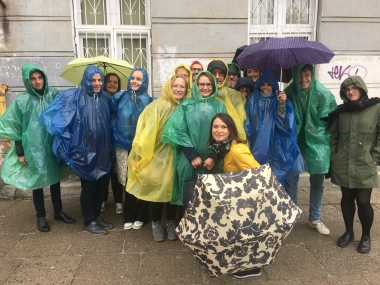
The first day of 4th Transational Network Meeting in Lodz took place in the premises of a local NGO “Socially Involved” located in the Stare Polesie district in the revitalization area in the city Centre of Lodz. Location was selected purposefully, as this is where ULG in Lodz operates and few social projects are being implemented. We started with a short integration exercise to allow new people to meet one another within the network, which was instantly followed by the very first presentation on the theme of the 4th TNM that is Area Revitalisation (urban regeneration programme) in Lodz and its social component – mediation, being one of the core elements in the “Urban-Regeneration-Mix” Transfer Network.
Community Development Path - from individual needs analysis to specific action
Representative of the city of Lodz and a ULG member Aleksandra Trzcińska told the story of a local community 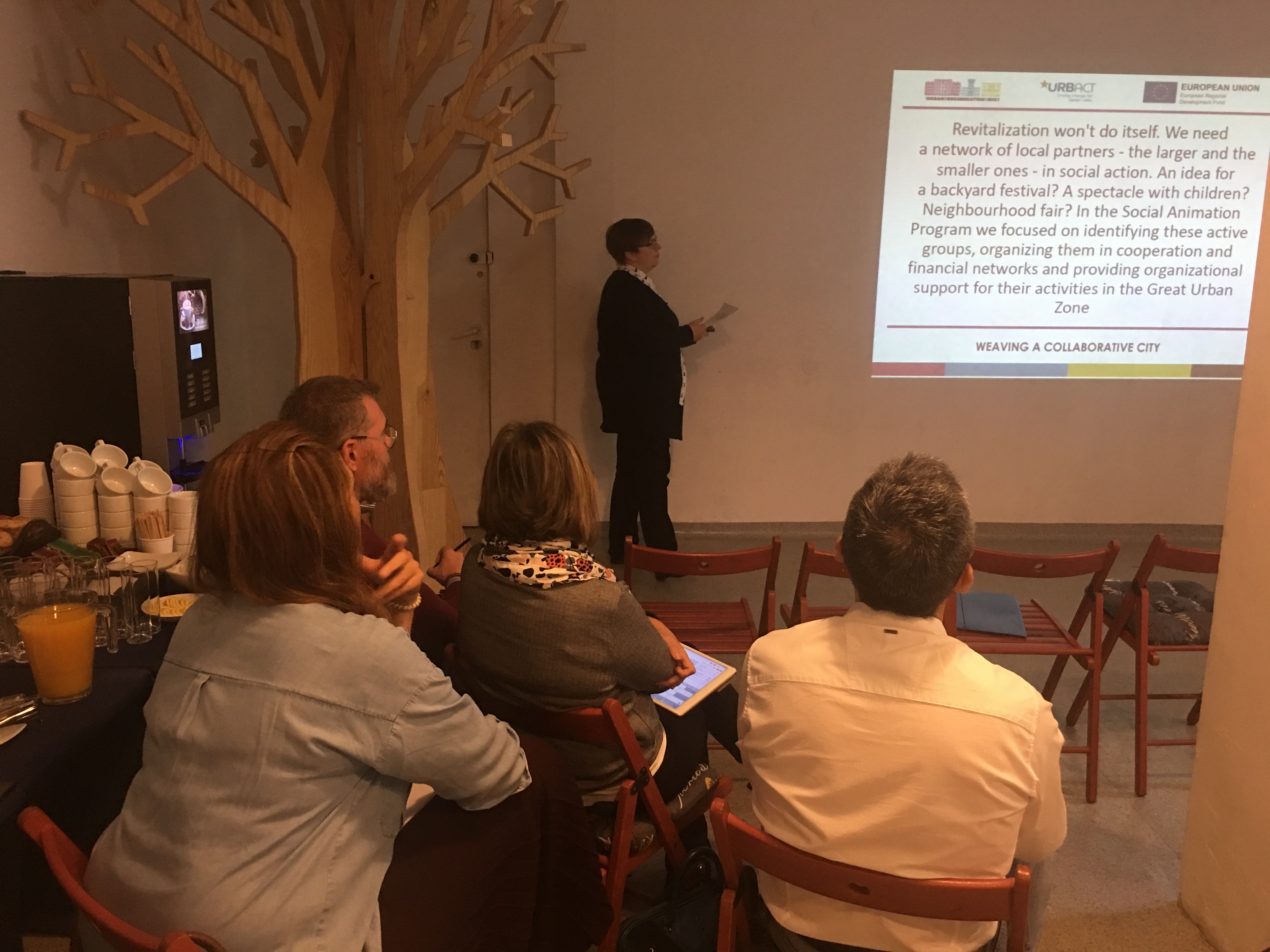 development path, explaining how urban regeneration activities began in Lodz and how the municipality prepared for the complex urban regeneration process in the historic city centre. Since revitalization won’t happen on its own, she described how a network of local partners has been developed in order to implement, among others, a Social Animation Programme including regular network meetings, fieldwork of animators and support for micro-activities. The Remixers gained a thorough insight into the Municipal Revitalization Programme, explaining how the degraded area and then the actual revitalization area were delimitated. The latter of which is covered by various urban regeneration projects being currently implemented. There were also examples of social activities described, such as: Zielone Polesie project, Multi-generational House, a Model Community (microgrant programme), to be showcased in site visit later that day.
development path, explaining how urban regeneration activities began in Lodz and how the municipality prepared for the complex urban regeneration process in the historic city centre. Since revitalization won’t happen on its own, she described how a network of local partners has been developed in order to implement, among others, a Social Animation Programme including regular network meetings, fieldwork of animators and support for micro-activities. The Remixers gained a thorough insight into the Municipal Revitalization Programme, explaining how the degraded area and then the actual revitalization area were delimitated. The latter of which is covered by various urban regeneration projects being currently implemented. There were also examples of social activities described, such as: Zielone Polesie project, Multi-generational House, a Model Community (microgrant programme), to be showcased in site visit later that day.
How to create a social mix in a revitalised space? - a model of resettling tenement houses and new social functions in revitalised area.
After the introductory part, a couple of ULG members Marta Ignaczak and Natalia Rydlewska explained how to create a social mix in a revitalized space. In their presentation of a model of resettling developed by the City of Lodz they focused on results of a study conducted among residents to be moved out (only 2% of them wish to return to their previous homes). Based on the results of an analysis on future housing planned in each renovated tenement house in the city centre and respondents replies a resettlement model was drafted to guarantee as various and complementary residents’ profile as possible in all renovated tenements in the revitalized area. Moreover, Natalia gave an overview of new social functions to be introduced in the revitalized buildings in the historic city centre, among others: Local Activity Centres, Protective houses, Civic Centre, Consultancy and Educational Point in the field of youth counseling, Work Activation Centre, Childcare Facilities, Crisis Intervention Centre, Social Work Point, Social Support and Development Centre, Houses of Daily Stay, Community Self-Help Houses etc.
Having learned the basics of Municipal Revitalization Programme in Lodz, participants of the meeting had many questions to presented solutions. The presentations were thus followed by a discussion on the Lodz case in relation to experiences of other European cities in the network.
Participatory processes of collective designing of public spaces
Revitalisation Bureau, City Urban Planning Laboratory and a local NGO explained the participatory processes of collective designing of public spaces in Lodz – the case study of the Stare Polesie District where the meeting on the Day 1 was held. Anna Sokołowska from the City Urban Planning Laboratory showed and described us the whole process of spatial planning of the Stare Polesie area to provide new public spaces addressing the needs of local residents. Anna Kobalczyk (Revitalisation Bureau) and Agnieszka Reiske (Socially Involved NGO) provided us with details of participatory design methodology applied including how the key stakeholders were identified, what means of communication were used and how needs of residents were determined. We learned about “project ambassadors” working locally to collect opinions from as many residents as possibly, diagnostic walks held with residents of various age groups (also children and elderly) and the consultation part of participatory design and its tools (work from white sheet of paper, not on ready-made solutions), e.g.:
- “Street Alphabet” – a guide for residents on “How to design streets and public spaces?”
- Social needs analysis tool.


Study Visit: Stare Polesie District, Legionów Street and Multi-Generational House
In the afternoon, having a background knowledge on the selected revitalization and social projects in Lodz The Remixers took part in field visits carried out in order to show discussed examples on site.
There was a walking tour around the Stare Polesie District where participatory design approach was used (1), Legionów Street where backyards space and activity were financed with microgrants (2) and the Multi-Generational House in which a Neighbourhood Club operates (3).
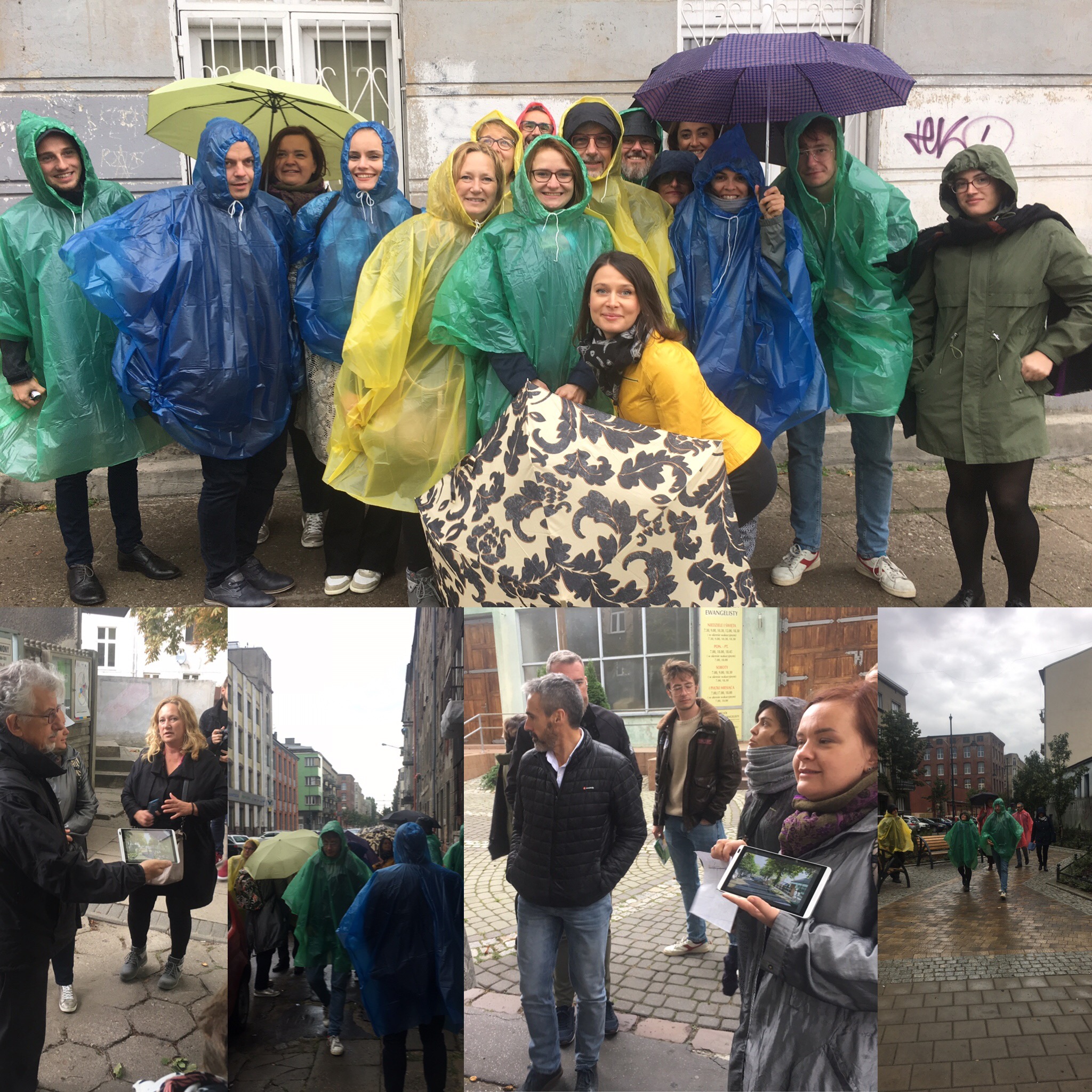
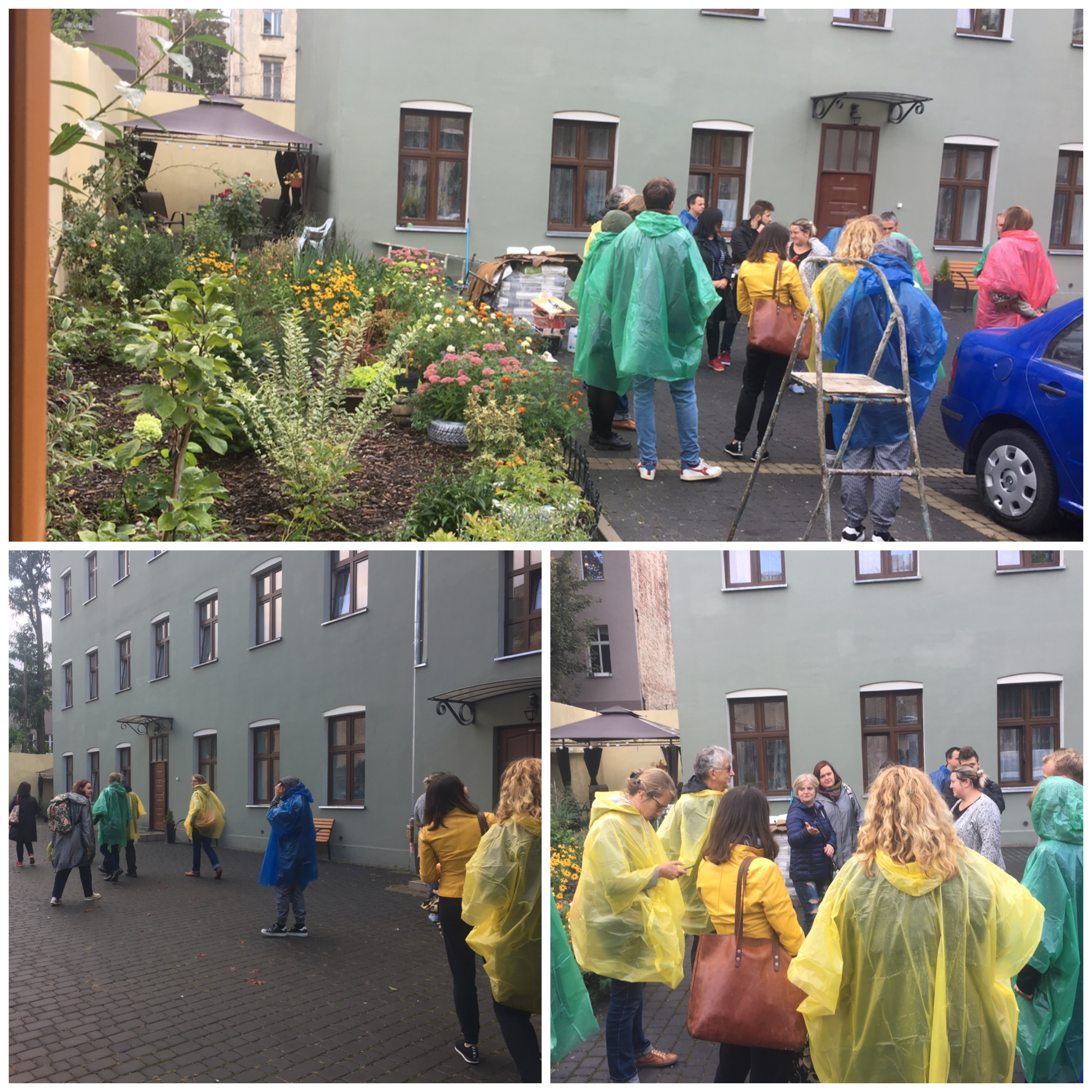
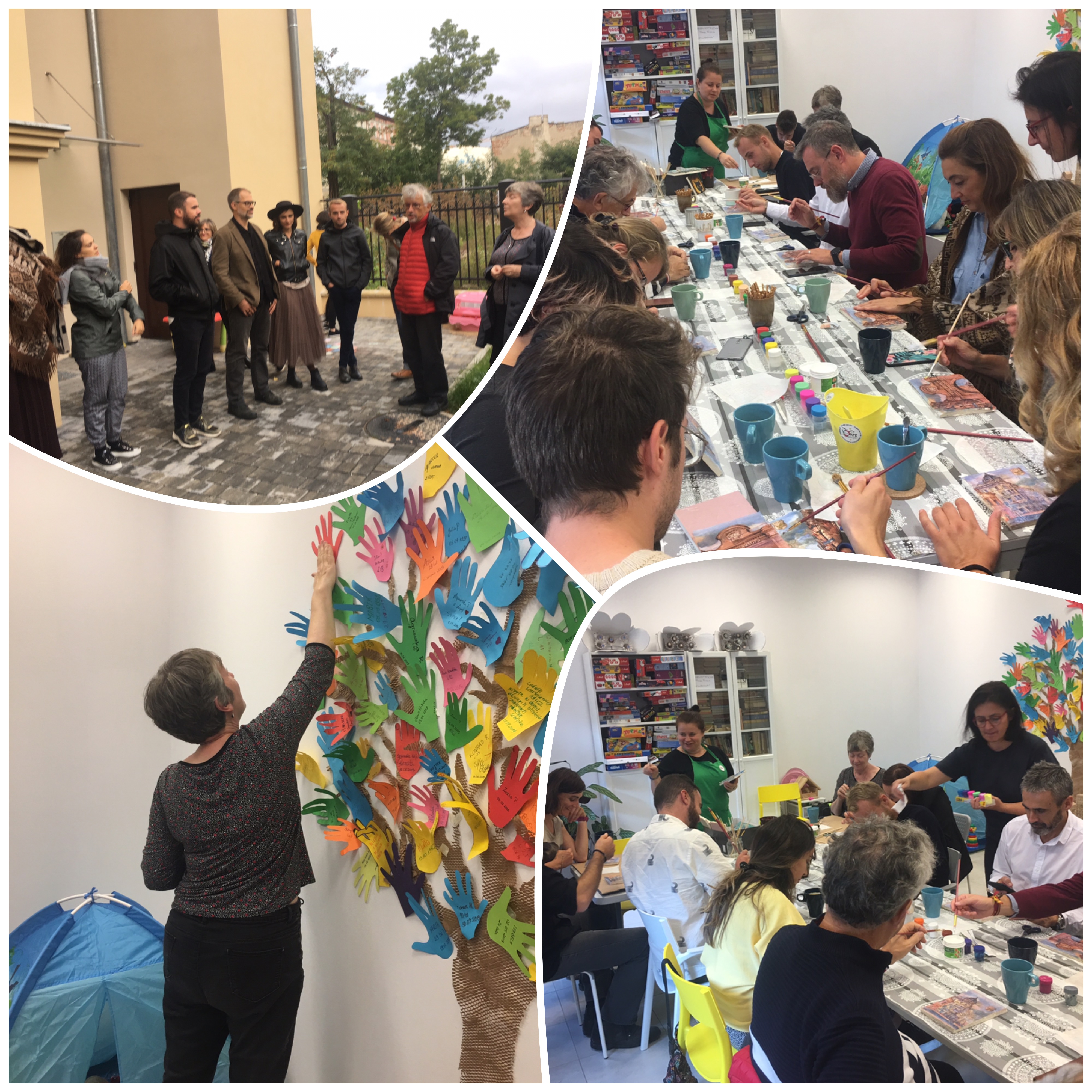
Stare Polesie District - It is a space where pilot actions in the field of participatory design were carried out. It is also the area where the Zielone Polesie revitalisation project is being carried out. The project of the Zielone Polesie programme focuses on developing a sustainable concept of a communication system and a coherent network of public spaces and green spaces.
Legionów Street - during this visit we focused on the courtyard of the tenement house located at 50 Legionów Street, where a very active neighborhood community operates. We learned about the history of building this community, which was created as a result of moving from tenement houses intended for revitalization. With the support of our ULG, they managed to obtain funds from the municipal microgrant program to improve the infrastructure of the courtyard in such a way that it could become a meeting place not only for the people living in the building, but also for the local community from the neighboring tenement houses.
Multi-Generational House Multi-Generational House - The idea of this innovative housing model in Poland is to create bonds between people, also outside the family. The values of the Multi-generational House are mutual help, cooperation regardless of age, kindness and openness to the needs of others, respect and acceptance. An important place in the Multi-generational House is the Neighbourhood Club, i.e. a common space where residents can meet, pursue their passions and interests, and share common ideas. In a neighborhood 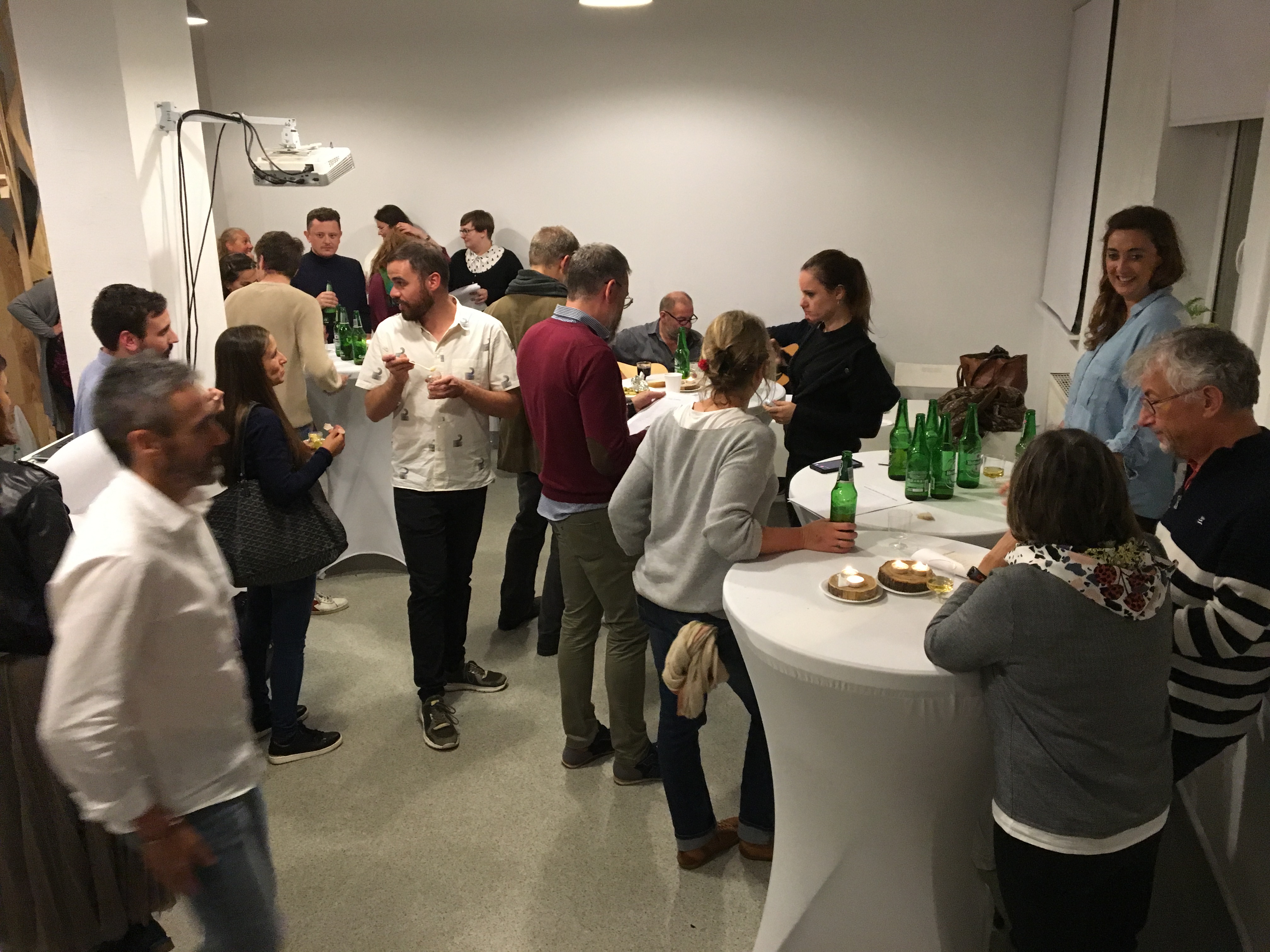 club operating there Agnieszka from NGO Społecznie Zaangażowani and Małgosia, an animator, made us feel like the inhabitants of this extraordinary house. We participated in the workshop, just as the residents of this house and the surrounding tenement houses also learned about the history of this place, the way it functions and how its residents were chosen
club operating there Agnieszka from NGO Społecznie Zaangażowani and Małgosia, an animator, made us feel like the inhabitants of this extraordinary house. We participated in the workshop, just as the residents of this house and the surrounding tenement houses also learned about the history of this place, the way it functions and how its residents were chosen
The first day ended with an informal barbecue in the premises of Socially Ivolved NGO during which participants could mingle together with the Lodz ULG members, mediators and local leaders, residents engaged in the NGO activities.
Mediators & Capacity to work face – to - face with inhabitants
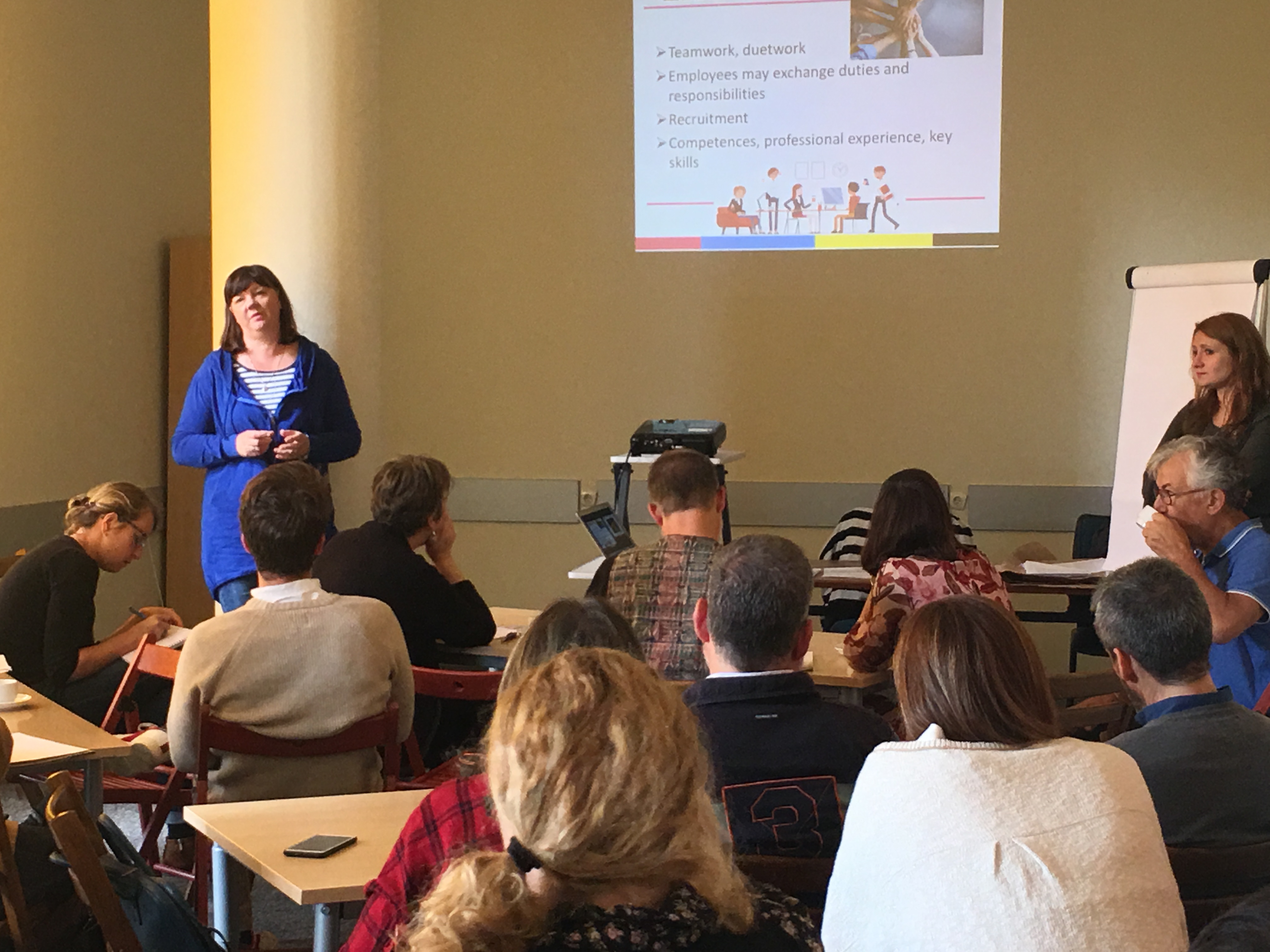 On the second day of 4th Transnational Network Meeting in Lodz the Remixers were hosted in the premises of another local NGO “OPUS” located in one of the Revitalization Areas in the historic city centre. Again the location was selected purposefully, as the ULG activities cover the area in the neighbourhood where numerous social projects are being implemented. After a welcome speech by the Director of the NGO who explained the idea of how OPUS works and gave examples of local projects financed with microgrants distributed in a call managed by the NGO, we moved directly to the topic of mediation in urban regeneration. There was a whole panel devoted to the City of Lodz Good Practice, i.e. work of mediators in the revitalization process. Participants not only had the opportunity to meet the whole team of Lighthouse Keepers and Area Hosts working with residents of Lodz, but also learned what competences and skills are necessary to work as a mediator (open-mindedness and empathy appear crucial here) and what are their responsibilities on the job (in a later discussion it turned out that mediators deal with absolutely everything). Ewa Grabarczyk, the ULG coordinator and manager of the mediators team in the Revitalization Bureau described the proc
On the second day of 4th Transnational Network Meeting in Lodz the Remixers were hosted in the premises of another local NGO “OPUS” located in one of the Revitalization Areas in the historic city centre. Again the location was selected purposefully, as the ULG activities cover the area in the neighbourhood where numerous social projects are being implemented. After a welcome speech by the Director of the NGO who explained the idea of how OPUS works and gave examples of local projects financed with microgrants distributed in a call managed by the NGO, we moved directly to the topic of mediation in urban regeneration. There was a whole panel devoted to the City of Lodz Good Practice, i.e. work of mediators in the revitalization process. Participants not only had the opportunity to meet the whole team of Lighthouse Keepers and Area Hosts working with residents of Lodz, but also learned what competences and skills are necessary to work as a mediator (open-mindedness and empathy appear crucial here) and what are their responsibilities on the job (in a later discussion it turned out that mediators deal with absolutely everything). Ewa Grabarczyk, the ULG coordinator and manager of the mediators team in the Revitalization Bureau described the proc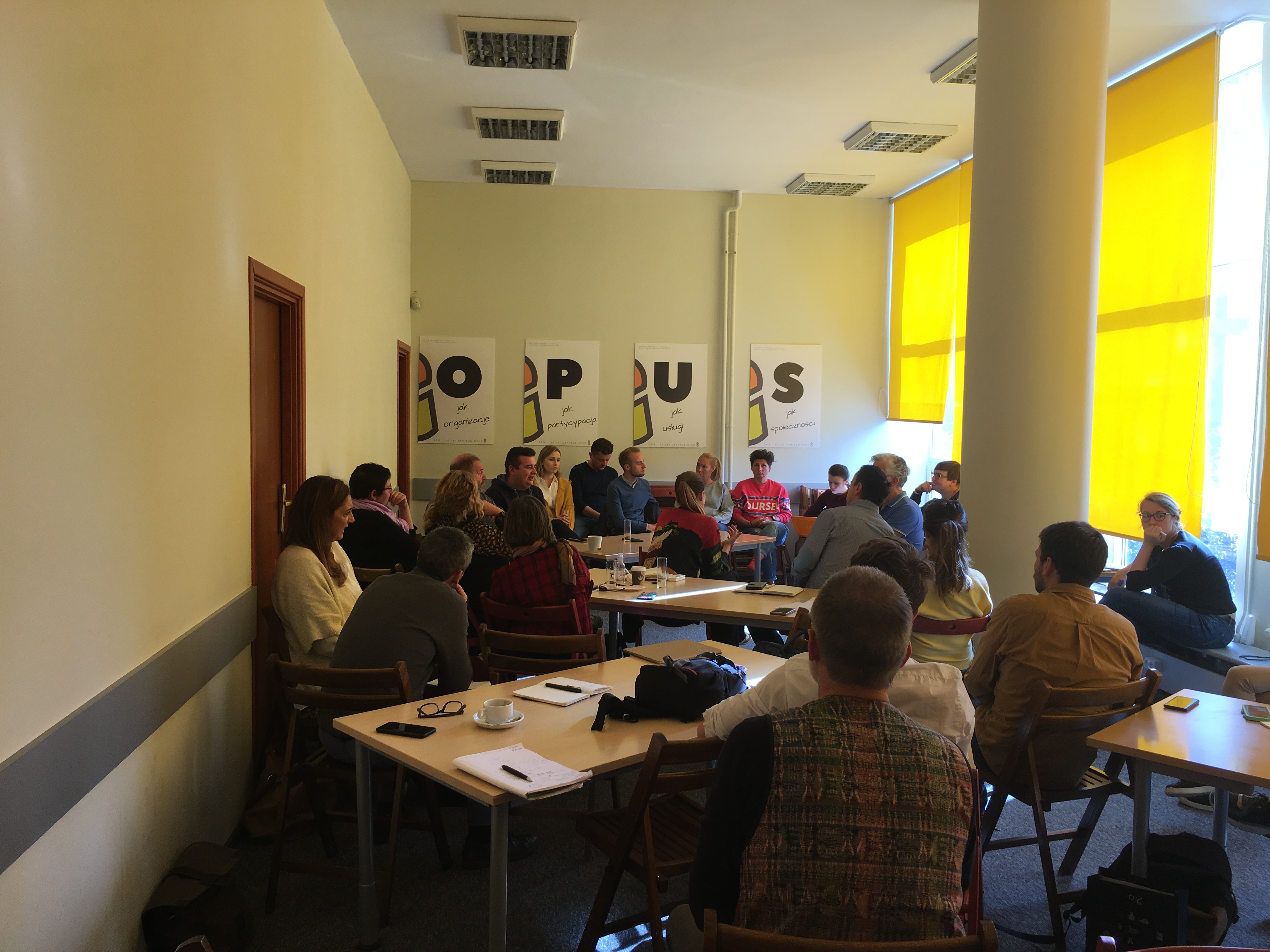 ess of recruitment carried out with the specificities of local authorities administrative regulations. A couple of newly recruited mediators shared their motivation for such a face-to-face work with residents from different social backgrounds and reflections from applying for these positions. Remixers took advantage of mediators’ presence and asked numerous questions about their work experiences. We discussed challenges of this job, e.g. among women mediatorswhether they feel vulnerable working with people from difficult backgrounds (families with social problems as drug dealing, alcohol abuse, domestic violence or deficiencies as regards the sanitary conditions). In general, female mediators declared that their insecurity in some of the abovementioned circumstances is not related to their gender. Lighthouse Keepers and Area Hosts described how they gradually build relationships with the residents and gave examples of memorable, difficult case studies from their work experience so far (e.g. when handing a resident a notice of eviction, informing a disabled person of being moved to a flat on the 3rd floor and negotiating with the Housing Department another flat option). Mediators also stressed that they play the role of intermediaries between residents and the City Hall and civil servants from numerous departments dealing with administrative issues on behalf of families their support. What is important, to avoid professional burnout and decrease work-related stress mediators are provided with psychological help and are regularly supervised.
ess of recruitment carried out with the specificities of local authorities administrative regulations. A couple of newly recruited mediators shared their motivation for such a face-to-face work with residents from different social backgrounds and reflections from applying for these positions. Remixers took advantage of mediators’ presence and asked numerous questions about their work experiences. We discussed challenges of this job, e.g. among women mediatorswhether they feel vulnerable working with people from difficult backgrounds (families with social problems as drug dealing, alcohol abuse, domestic violence or deficiencies as regards the sanitary conditions). In general, female mediators declared that their insecurity in some of the abovementioned circumstances is not related to their gender. Lighthouse Keepers and Area Hosts described how they gradually build relationships with the residents and gave examples of memorable, difficult case studies from their work experience so far (e.g. when handing a resident a notice of eviction, informing a disabled person of being moved to a flat on the 3rd floor and negotiating with the Housing Department another flat option). Mediators also stressed that they play the role of intermediaries between residents and the City Hall and civil servants from numerous departments dealing with administrative issues on behalf of families their support. What is important, to avoid professional burnout and decrease work-related stress mediators are provided with psychological help and are regularly supervised.
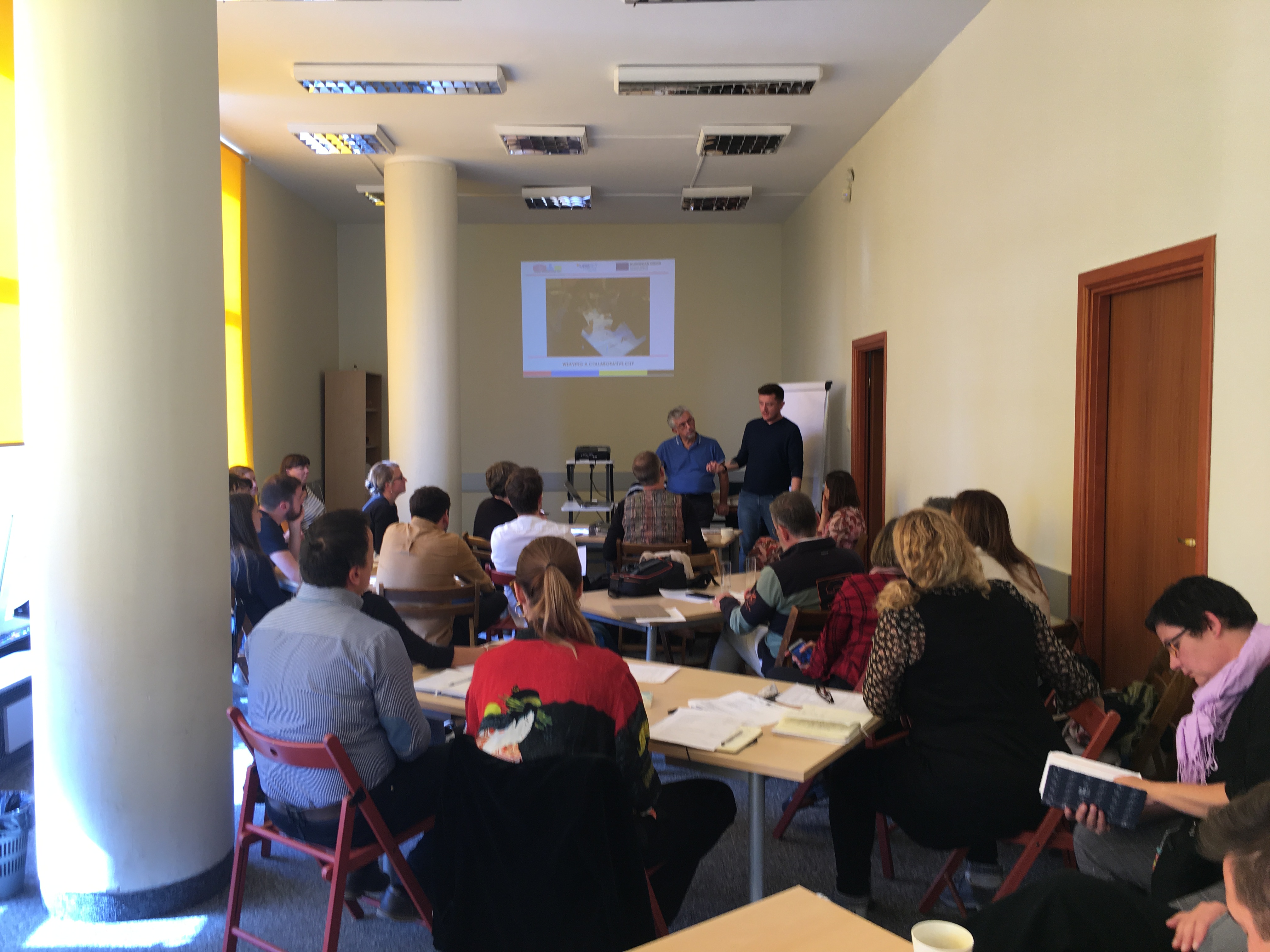 Another topic raised during the 2nd day was cooperation between the City of Lodz Office and local entrepreneurs operating in the revitalization area. Representative of the Revitalisation Bureau, Mr. Rafał Lewonowski afforded us a glimpse of his work that is supporting SMEs and self-employed craftsmen whose economic activity is located in buildings to be renovated within the revitalization programme, eg. accompanying them in administrative procedures to move their econo
Another topic raised during the 2nd day was cooperation between the City of Lodz Office and local entrepreneurs operating in the revitalization area. Representative of the Revitalisation Bureau, Mr. Rafał Lewonowski afforded us a glimpse of his work that is supporting SMEs and self-employed craftsmen whose economic activity is located in buildings to be renovated within the revitalization programme, eg. accompanying them in administrative procedures to move their econo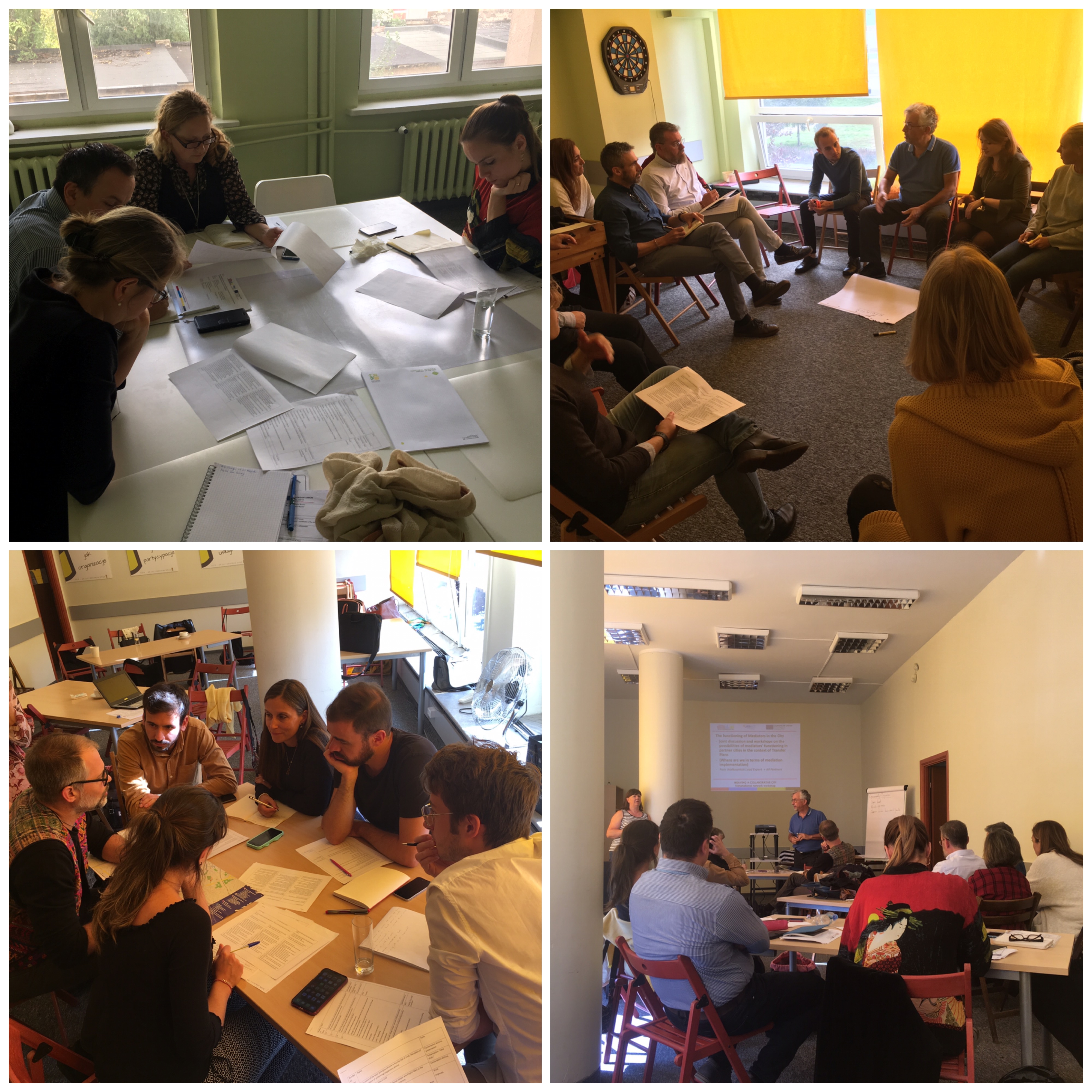 mic activity to another location, offering new rental space and negotiating preferential rates, encouraging to carry on their businesses despite difficulties stemming from construction works (temporary limited access to their shops and offices, decreasing number of clients), facilitating communication between entrepreneurs and respective city departments and units.
mic activity to another location, offering new rental space and negotiating preferential rates, encouraging to carry on their businesses despite difficulties stemming from construction works (temporary limited access to their shops and offices, decreasing number of clients), facilitating communication between entrepreneurs and respective city departments and units.
Then, Marta Ignaczak gave a brief overview on the training programme for employees preparing for work as mediators lasting for 2 weeks after employment. Trainees took part in numerous lecture and workshops with experts in the fields of: housing allocation, debt collection, social work, medical help, cooperation with NGOs, social psychology. The presentation was followed by an exercise during which Remixers divided into groups in which they tried to answer a question: “How can we improve our training for the new (mediating) roles? (area managers)” and discussed the functioning (also potential) od Mediators in the City.
Study visit to the Revitalization Area of the Centre of Łódź and ULG activities
In the afternoon, The Remixers took part in a field visit around selected areas within the Area Revitalization Programme. They were accompanied by mediators and ULG members who familiarized them with renovations and social activities being carried out and planned.
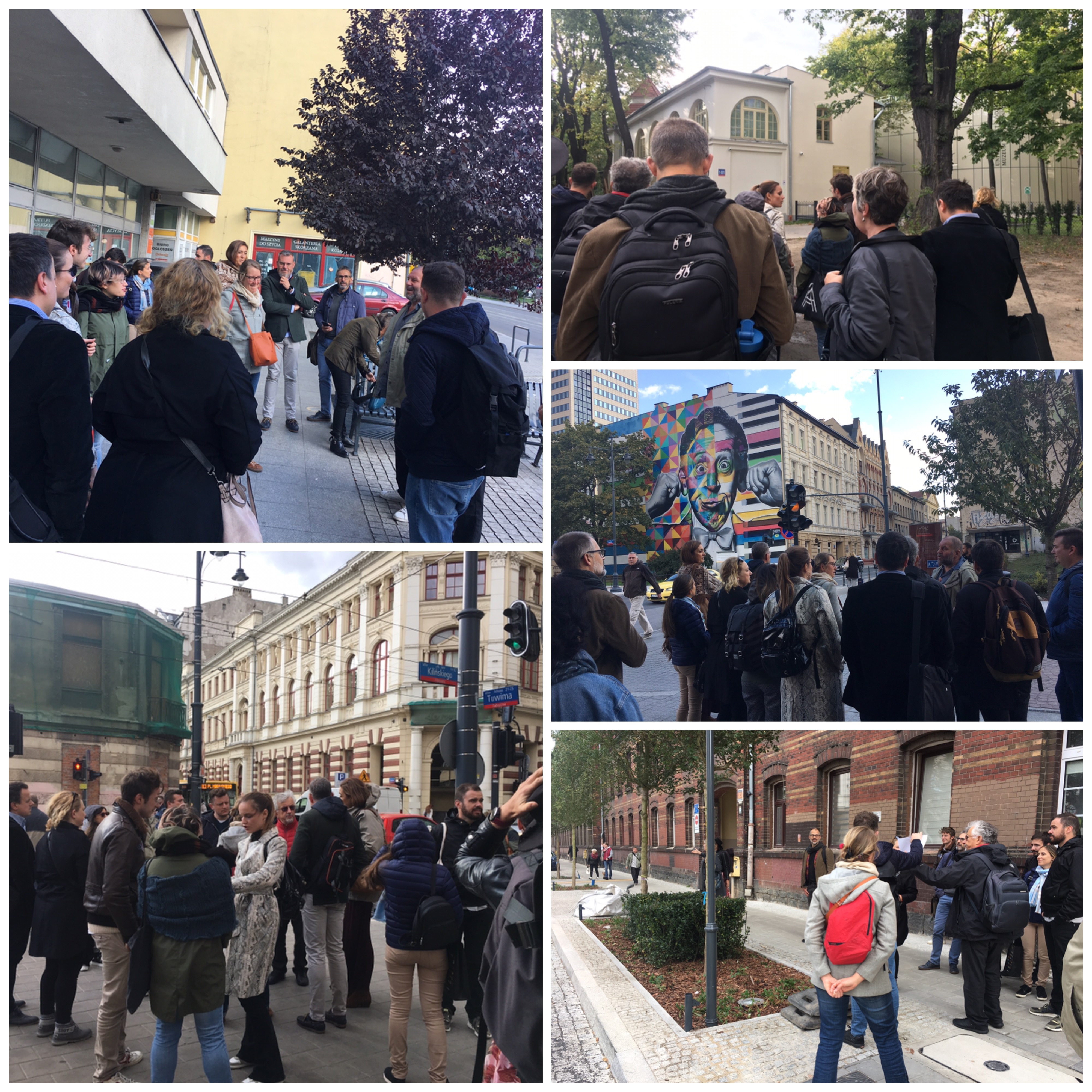
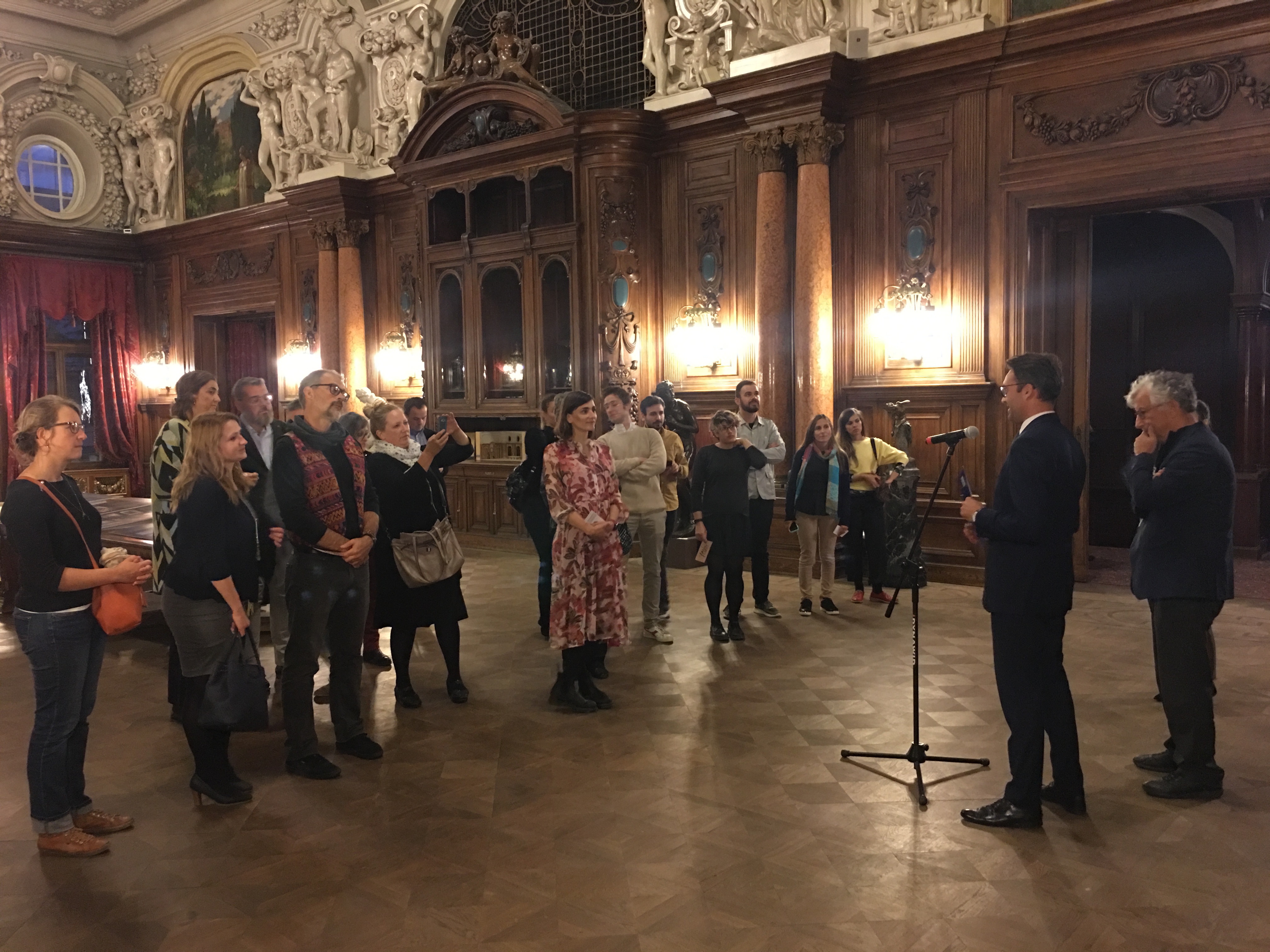
In the evening there was a guided tour around the Museum of History of Lodz in former residence of a textile manufacturer Israel Poznanski, which is an exquisite example of the city’s cultural heritage and a complex urban regeneration project under the Municipal Revitalisation Programme co-funded by the EU, the City of Lodz and state budget. The event began with an address from Mr. Slawomir Granatowski, the Director of the Revitalisation Bureau who greeted the participants and partners in the network on behalf of the Mayor of the City of Lodz
Building pro-active relations between the city and residents – summary & discussion
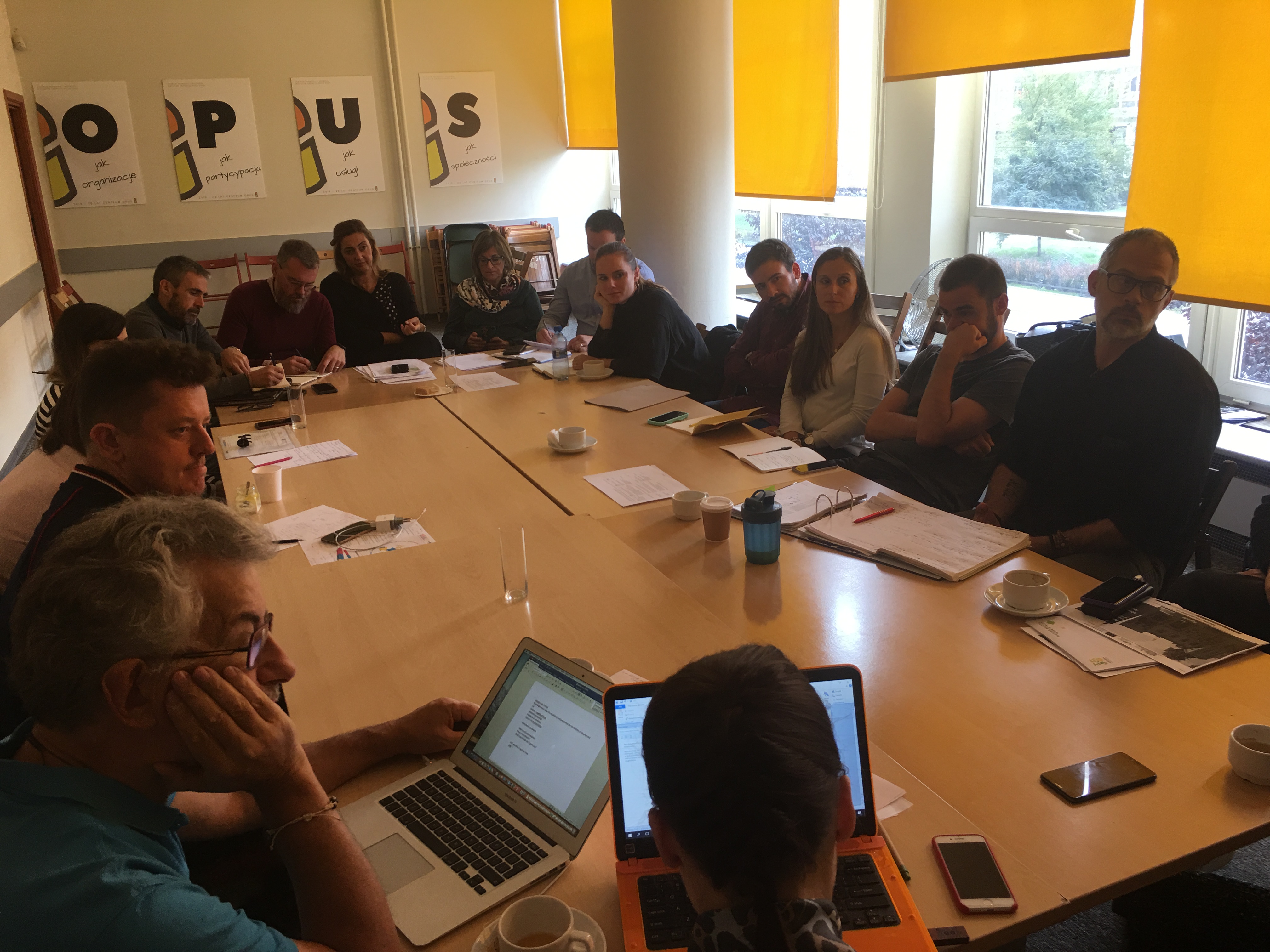 On the third day, the panels were held to summarize our activities within the network and the ULG established in each of the cities. Each partner gave an overview of the functioning of ULG. In a wrap-up of our 4th TNM the Good Practice City collected reactions from the partner cities on mediation being thoroughly presented during the past 3 days in order to learn which tools, e.g. mediators profiles: Lighthouse Keeper, Area Host (or ones to be developed like Area Manager and Social/Local Community Organiser), trainings, microgrants, participatory design model used in Lodz are most interesting and applicable in other environments.
On the third day, the panels were held to summarize our activities within the network and the ULG established in each of the cities. Each partner gave an overview of the functioning of ULG. In a wrap-up of our 4th TNM the Good Practice City collected reactions from the partner cities on mediation being thoroughly presented during the past 3 days in order to learn which tools, e.g. mediators profiles: Lighthouse Keeper, Area Host (or ones to be developed like Area Manager and Social/Local Community Organiser), trainings, microgrants, participatory design model used in Lodz are most interesting and applicable in other environments.
There was also the coordinators’ meeting during which we discussed about the forthcoming Mid-Term Reflection Meeting (scheduled for 10–12 December in Bologna) and its requirements (together we went through the URBACT questionnaire) and project budget reporting and monitoring in the Synergie-CTE with deadlines to be observed.
Submitted by n.rydlewska on
